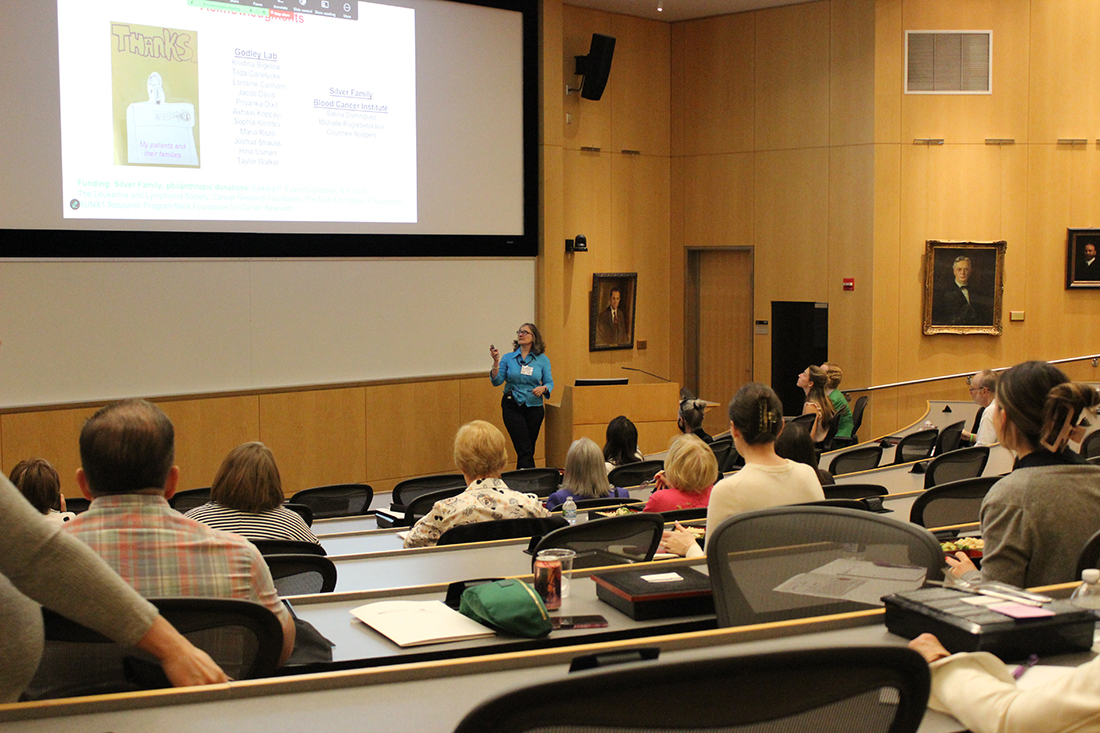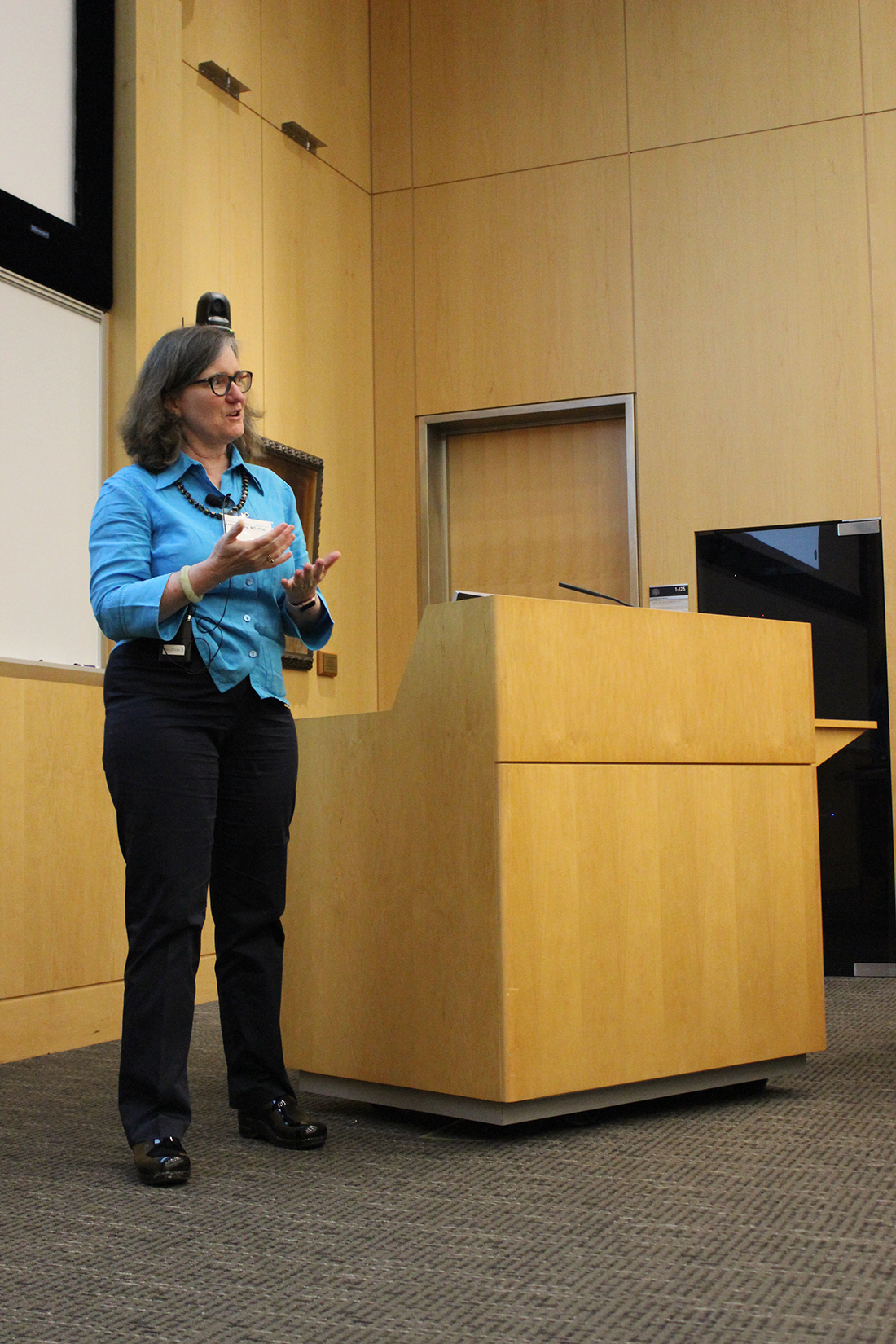Oncologist Highlights Genetic Links to Blood Cancers in Public Lecture
June 11, 2025

About 40 patients, donors, and friends attended a lunchtime lecture June 10 to learn about breakthroughs in blood and bone marrow cancer inheritance from Lucy Godley, MD, PhD, the Jeffrey and Marianne Silver Family Professor of Oncology.
Dr. Godley is a leading hematologic oncologist at the Robert H. Lurie Comprehensive Cancer Center of Northwestern University Feinberg School of Medicine, where she spearheads research into the genetic roots of blood and bone marrow cancers. As director of the Silver Family Blood Cancer Institute, she and her team of scientists are working to uncover how inherited mutations such as BRCA1, BRCA2, and CHEK2 contribute to malignancies like leukemia and lymphoma.

Her lab's mouse models and patient data reveal a strong link between these genes and blood cancers, challenging the traditional focus of the genes' connection with solid tumors. As an early-career scientist, this notion drew challenges from senior physicians who argued that inherited cancer risk was only relevant to solid tumors like breast or ovarian cancer—not blood cancers.
"In science, when people keep telling you that something isn’t a thing, you know it’s a thing," she said.
This marked the beginning of her journey into uncovering the genetic basis of blood cancers, which eventually led to significant discoveries and the establishment of new clinical and research frameworks. Thanks to generous giving from the Silver family, she said, the Silver Family Blood Cancer Institute has supported translational research in blood and bone marrow cancers, helping bridge the gap between laboratory discoveries and patient care.
With additional philanthropic support, Dr. Godley said she aims to expand genetic screening and develop targeted therapies, potentially reshaping cancer prevention and treatment strategies. These ambitious efforts rely on philanthropic support to fund genome sequencing, long-term patient studies, and innovative lab models, ensuring discoveries translate into better prevention and treatment for patients worldwide.
Dr. Godley also said her team was one of many affected by uncertainty and financial strain caused by the federal freeze of crucial National Institutes of Health (NIH) funds, despite institutional efforts to keep research moving forward.
For more information about supporting Dr. Godley's research, please contact Nicole Langert at nicole.langert@northwestern.edu or 312-503-1656.